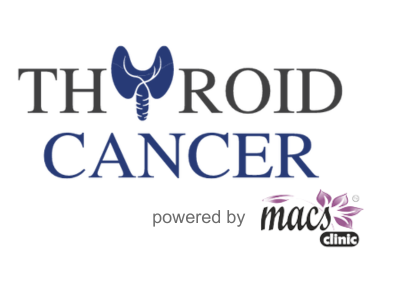Radiofrequency Ablation (RFA) for Thyroid Nodules
Thyroid nodules are a common medical condition, often causing discomfort, cosmetic concerns, or even functional issues like difficulty swallowing. The good news is that modern medical advancements have introduced minimally invasive techniques like Radiofrequency Ablation (RFA) to treat benign thyroid nodules effectively. In this article, we’ll explore what RFA is, how it works, its benefits, and what patients can expect.
What is Radiofrequency Ablation (RFA)?
RFA is a minimally invasive procedure used to treat benign (non-cancerous) thyroid nodules. Using ultrasound guidance, a thin, needle-like electrode delivers radiofrequency energy directly to the nodule. This energy generates heat, which reduces the size of the nodule by breaking down its tissue. Over time, the body absorbs the treated tissue, leading to noticeable improvements in symptoms and appearance.
This technique is especially appealing because it avoids the need for traditional thyroid surgery, allowing patients to preserve their thyroid function and experience faster recovery times.
Why Choose RFA for Thyroid Nodules?
RFA has gained popularity for several reasons:
- Effective Volume Reduction: Studies show that RFA can reduce nodule size by 67%–75% in the first year after treatment, with continued improvement over time. In some cases, volume reduction rates reach as high as 95% after long-term follow-up.
- Symptom and Cosmetic Relief: If your nodule is causing pressure, discomfort, or visible swelling, RFA can significantly improve these issues. Patients often report feeling more comfortable and confident after treatment.
- Minimally Invasive with Low Risk: Unlike surgery, RFA does not require large incisions or general anesthesia. Recovery is quick, and complications like vocal cord paralysis or hypothyroidism are rare (less than 2% of cases).
- Preserves Thyroid Function: RFA targets the nodule while leaving the rest of the thyroid gland intact. This means your thyroid can continue to function normally, reducing the need for lifelong thyroid hormone replacement therapy.
- Quick Recovery: Most people can return to their normal activities within 24–48 hours after the procedure.
Who is a Good Candidate for RFA?
RFA is not for everyone, but it is an excellent option for many patients with specific types of thyroid nodules. You may be a good candidate if:
- You have a benign thyroid nodule that is causing symptoms or cosmetic concerns.
- Your nodule is between 2–4 cm in size, though larger nodules can also be treated with multiple sessions.
- You prefer a less invasive option compared to traditional surgery or are not a suitable candidate for surgery due to health reasons.
- You value preserving your thyroid function.
However, RFA is not recommended if the nodule is cancerous, highly suspicious for malignancy, or if it is entirely cystic. These cases may require different treatments, such as surgery or other ablation techniques.
What to Expect During and After RFA
RFA is an outpatient procedure, meaning you don’t need to stay in the hospital. Here’s what typically happens:
- Before the Procedure: Your doctor will confirm that your thyroid nodule is benign and suitable for RFA using imaging and biopsy results.
- During the Procedure: You’ll be given local anesthesia to numb the area. Using ultrasound guidance, the doctor inserts a thin electrode into the nodule and applies radiofrequency energy to heat and reduce the nodule’s size. The procedure usually takes about 30–60 minutes.
- After the Procedure: Most patients experience mild swelling or discomfort, which resolves within a few days. You can return to work or your daily routine within 1–2 days.
Scarless Robotic Thyroid Surgery - How does it work?
Scarless robotic thyroid surgery using robotic RABIT technique has emerged as a successful option in recent years. Neck scars can cause self-consciousness for many patients. This advanced technique aims to avoid visible scars on the neck.
